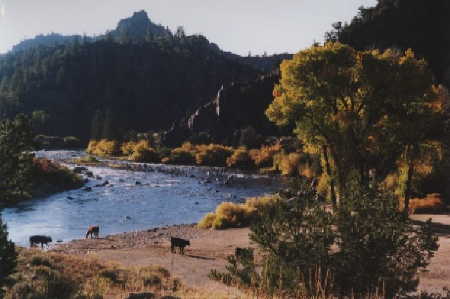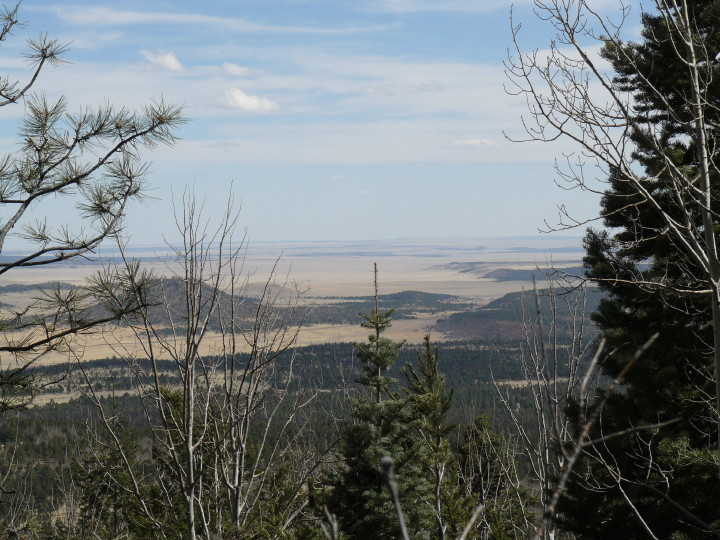Monday, July 19, 2010
Drillers Say They Don't Know if They're Fracking in Drinking Water--E&E Wire
07/19/2010
Mike Soraghan, E&E reporter
The oilfield service companies that perform hydraulic fracturing on natural gas wells told congressional investigators they do not know whether they are stimulating wells in underground sources of drinking water.
So, Energy and Commerce Chairman Henry Waxman (D-Calif.) and Rep. Ed Markey (D-Mass.) want 10 oil and gas producers who hire the service companies to provide a list of all hydraulically fractured wells in or near such sources.
"The hydraulic fracturing companies' service companies informed us that they do not track whether the wells they fracture are located in underground sources of drinking water," Markey wrote in a memo to members of his Energy and Environment Subcommittee.
The letter to the CEOs of the well operators, including BP America Inc., Chesapeake Energy Corp. and Exxon Mobil Corp., also sought information on recovery and disposal of "produced water" and other fluids that come back out of the well. Service companies told committee staffers that, too, was handled by the well operators.
Markey and Waxman launched their inquiry in February and have already asked 14 service companies for information about the chemicals they use to stimulate wells by fracturing them (Greenwire, Feb. 18)........continued......
Mike Soraghan, E&E reporter
The oilfield service companies that perform hydraulic fracturing on natural gas wells told congressional investigators they do not know whether they are stimulating wells in underground sources of drinking water.
So, Energy and Commerce Chairman Henry Waxman (D-Calif.) and Rep. Ed Markey (D-Mass.) want 10 oil and gas producers who hire the service companies to provide a list of all hydraulically fractured wells in or near such sources.
"The hydraulic fracturing companies' service companies informed us that they do not track whether the wells they fracture are located in underground sources of drinking water," Markey wrote in a memo to members of his Energy and Environment Subcommittee.
The letter to the CEOs of the well operators, including BP America Inc., Chesapeake Energy Corp. and Exxon Mobil Corp., also sought information on recovery and disposal of "produced water" and other fluids that come back out of the well. Service companies told committee staffers that, too, was handled by the well operators.
Markey and Waxman launched their inquiry in February and have already asked 14 service companies for information about the chemicals they use to stimulate wells by fracturing them (Greenwire, Feb. 18)........continued......
Thursday, July 15, 2010
Why Louisiana's Ecosystem Should Sue BP--Houma Today
Published in the Houma Today newspaper, Lafourche Parish, Louisiana
July 15, 2010
by Thomas Linzey
Community Environmental Legal Defense Fund (www.celdf.org)
For months, BP's oil spill has dominated the news.
The blame game between the government and the corporation began mere minutes
after the Deepwater Horizon explosion - the corporation blaming the
regulators, the regulators blaming the corporation.
Been there, done that.
The only exceptional thing about the finger-pointing is that it isn't
exceptional at all.
Although it's rarely said out loud, the regulators allow the energy
corporations to write their own regulations - and when it becomes too
expensive to comply with the regulations, the regulator simply exempts the
corporations from them or the corporations simply rewrite the regulations to
eliminate the added cost......continued....
July 15, 2010
by Thomas Linzey
Community Environmental Legal Defense Fund (www.celdf.org)
For months, BP's oil spill has dominated the news.
The blame game between the government and the corporation began mere minutes
after the Deepwater Horizon explosion - the corporation blaming the
regulators, the regulators blaming the corporation.
Been there, done that.
The only exceptional thing about the finger-pointing is that it isn't
exceptional at all.
Although it's rarely said out loud, the regulators allow the energy
corporations to write their own regulations - and when it becomes too
expensive to comply with the regulations, the regulator simply exempts the
corporations from them or the corporations simply rewrite the regulations to
eliminate the added cost......continued....
Why Louisiana's Ecosystem Should Sue BP--Houma Today
Published in the Houma Today newspaper, Lafourche Parish, Louisiana
July 15, 2010
by Thomas Linzey
Community Environmental Legal Defense Fund
For months, BP's oil spill has dominated the news.
The blame game between the government and the corporation began mere minutes
after the Deepwater Horizon explosion - the corporation blaming the
regulators, the regulators blaming the corporation.
Been there, done that.
The only exceptional thing about the finger-pointing is that it isn't
exceptional at all.
Although it's rarely said out loud, the regulators allow the energy
corporations to write their own regulations - and when it becomes too
expensive to comply with the regulations, the regulator simply exempts the
corporations from them or the corporations simply rewrite the regulations to
eliminate the added cost......continued....
July 15, 2010
by Thomas Linzey
Community Environmental Legal Defense Fund
For months, BP's oil spill has dominated the news.
The blame game between the government and the corporation began mere minutes
after the Deepwater Horizon explosion - the corporation blaming the
regulators, the regulators blaming the corporation.
Been there, done that.
The only exceptional thing about the finger-pointing is that it isn't
exceptional at all.
Although it's rarely said out loud, the regulators allow the energy
corporations to write their own regulations - and when it becomes too
expensive to comply with the regulations, the regulator simply exempts the
corporations from them or the corporations simply rewrite the regulations to
eliminate the added cost......continued....
Why Louisiana's Ecosystem Should Sue BP--Houma today
Published in the Houma Today newspaper, Lafourche Parish, Louisiana
July 15, 2010
by Thomas Linzey
Community Environmental Legal Defense Fund
For months, BP's oil spill has dominated the news.
The blame game between the government and the corporation began mere minutes
after the Deepwater Horizon explosion - the corporation blaming the
regulators, the regulators blaming the corporation.
Been there, done that.
The only exceptional thing about the finger-pointing is that it isn't
exceptional at all.
Although it's rarely said out loud, the regulators allow the energy
corporations to write their own regulations - and when it becomes too
expensive to comply with the regulations, the regulator simply exempts the
corporations from them or the corporations simply rewrite the regulations to
eliminate the added cost......continued....
July 15, 2010
by Thomas Linzey
Community Environmental Legal Defense Fund
For months, BP's oil spill has dominated the news.
The blame game between the government and the corporation began mere minutes
after the Deepwater Horizon explosion - the corporation blaming the
regulators, the regulators blaming the corporation.
Been there, done that.
The only exceptional thing about the finger-pointing is that it isn't
exceptional at all.
Although it's rarely said out loud, the regulators allow the energy
corporations to write their own regulations - and when it becomes too
expensive to comply with the regulations, the regulator simply exempts the
corporations from them or the corporations simply rewrite the regulations to
eliminate the added cost......continued....
Saturday, July 3, 2010
Thursday, July 1, 2010
New Mexico Ahead in the Green Game--Albuquerque Journal

By Julia Haggerty
Headwaters Economics
June 27 2010
New Mexico's combined strategy of targeted public policy, strong leadership, and support for business has made it a regional and national clean energy leader, increasing its green jobs faster than other Rocky Mountain States.
Headwaters Economics recently completed a report — Clean Energy Leadership in the Rockies: Competitive Positioning in the Emerging Green Economy — that compares how New Mexico, Colorado, Montana, Utah, and Wyoming are taking advantage of clean energy opportunities and five keys for future growth.
The states with the best early results and strongest competitive position are those able to capture new energy opportunities — not only power generation facilities and manufacturing jobs, but investment and employment in the myriad technologies, products and services related to a growing worldwide demand for clean energy, conservation and energy efficiency.
New Mexico's success shows the importance of both policy and political guidance at all levels of government, from county commissioner to U.S. senator. The state's aggressive outreach program, backed by strong incentives — including property tax breaks, bonding, and worker training — has attracted new jobs and investment to the state.
New Mexico leads the region in growing green jobs. The state's green employment grew by 62 percent from 1995 to 2007, compared to a 13 percent rate for its overall employment. Looking at the five-state region during the same time, green jobs grew by 30 percent while overall jobs increased by 19 percent. Nationally, green jobs grew by 18 percent and overall employment was up 10 percent...continued.....
Subscribe to:
Comments (Atom)










